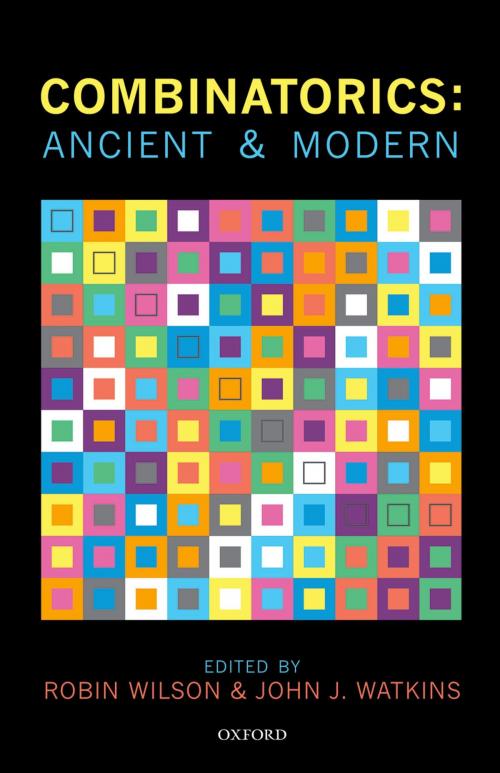| Author: | ISBN: | 9780191630637 | |
| Publisher: | OUP Oxford | Publication: | June 27, 2013 |
| Imprint: | OUP Oxford | Language: | English |
| Author: | |
| ISBN: | 9780191630637 |
| Publisher: | OUP Oxford |
| Publication: | June 27, 2013 |
| Imprint: | OUP Oxford |
| Language: | English |
Who first presented Pascal's triangle? (It was not Pascal.) Who first presented Hamiltonian graphs? (It was not Hamilton.) Who first presented Steiner triple systems? (It was not Steiner.) The history of mathematics is a well-studied and vibrant area of research, with books and scholarly articles published on various aspects of the subject. Yet, the history of combinatorics seems to have been largely overlooked. This book goes some way to redress this and serves two main purposes: 1) it constitutes the first book-length survey of the history of combinatorics; and 2) it assembles, for the first time in a single source, researches on the history of combinatorics that would otherwise be inaccessible to the general reader. Individual chapters have been contributed by sixteen experts. The book opens with an introduction by Donald E. Knuth to two thousand years of combinatorics. This is followed by seven chapters on early combinatorics, leading from Indian and Chinese writings on permutations to late-Renaissance publications on the arithmetical triangle. The next seven chapters trace the subsequent story, from Euler's contributions to such wide-ranging topics as partitions, polyhedra, and latin squares to the 20th century advances in combinatorial set theory, enumeration, and graph theory. The book concludes with some combinatorial reflections by the distinguished combinatorialist, Peter J. Cameron. This book is not expected to be read from cover to cover, although it can be. Rather, it aims to serve as a valuable resource to a variety of audiences. Combinatorialists with little or no knowledge about the development of their subject will find the historical treatment stimulating. A historian of mathematics will view its assorted surveys as an encouragement for further research in combinatorics. The more general reader will discover an introduction to a fascinating and too little known subject that continues to stimulate and inspire the work of scholars today.
Who first presented Pascal's triangle? (It was not Pascal.) Who first presented Hamiltonian graphs? (It was not Hamilton.) Who first presented Steiner triple systems? (It was not Steiner.) The history of mathematics is a well-studied and vibrant area of research, with books and scholarly articles published on various aspects of the subject. Yet, the history of combinatorics seems to have been largely overlooked. This book goes some way to redress this and serves two main purposes: 1) it constitutes the first book-length survey of the history of combinatorics; and 2) it assembles, for the first time in a single source, researches on the history of combinatorics that would otherwise be inaccessible to the general reader. Individual chapters have been contributed by sixteen experts. The book opens with an introduction by Donald E. Knuth to two thousand years of combinatorics. This is followed by seven chapters on early combinatorics, leading from Indian and Chinese writings on permutations to late-Renaissance publications on the arithmetical triangle. The next seven chapters trace the subsequent story, from Euler's contributions to such wide-ranging topics as partitions, polyhedra, and latin squares to the 20th century advances in combinatorial set theory, enumeration, and graph theory. The book concludes with some combinatorial reflections by the distinguished combinatorialist, Peter J. Cameron. This book is not expected to be read from cover to cover, although it can be. Rather, it aims to serve as a valuable resource to a variety of audiences. Combinatorialists with little or no knowledge about the development of their subject will find the historical treatment stimulating. A historian of mathematics will view its assorted surveys as an encouragement for further research in combinatorics. The more general reader will discover an introduction to a fascinating and too little known subject that continues to stimulate and inspire the work of scholars today.















